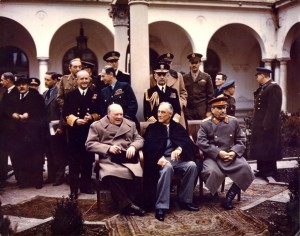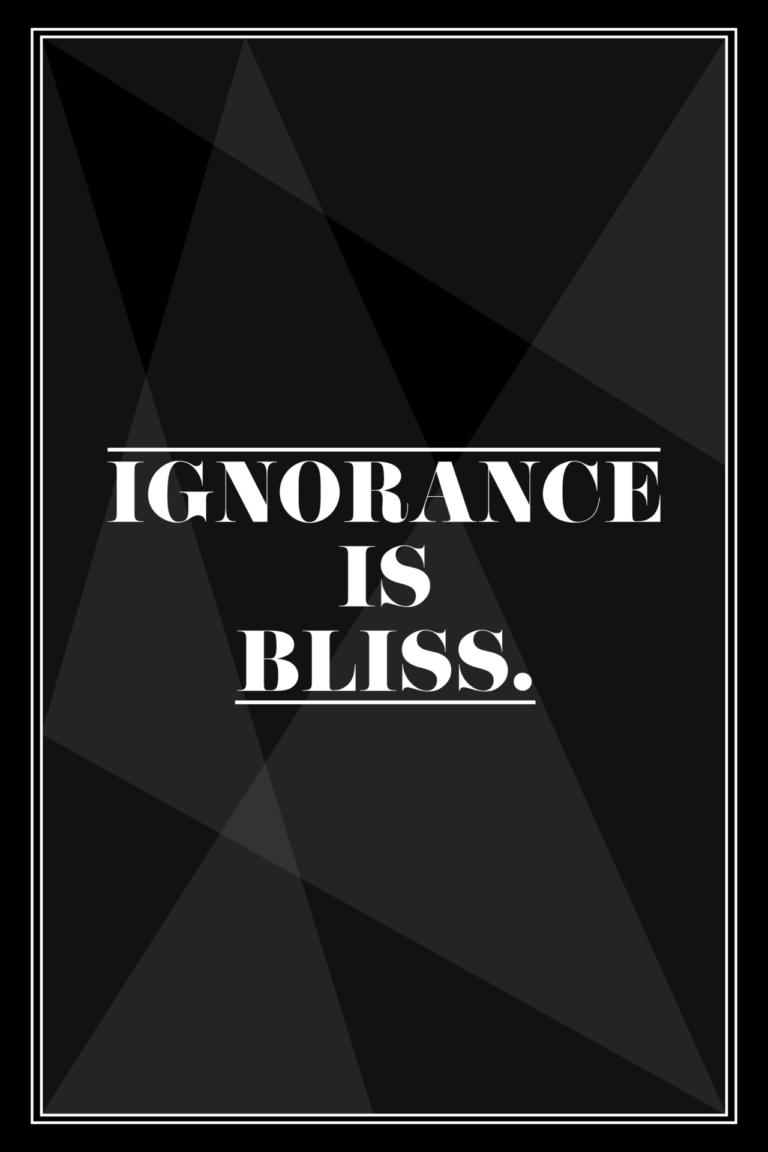Yalta Conference February 4-11,1945- Churchill, Stalin and Roosevelt in Attendance
The Yalta Conference, sometimes called the Crimea Conference and codenamed the Argonaut Conference, held from February 4 to 11, 1945, was the World War II meeting of the heads of government of the United States, the United Kingdom and the Soviet Union, represented by President Franklin D. Roosevelt, Prime Minister Winston Churchill and Premier Joseph Stalin, respectively, for the purpose of discussing Europe’s post-war reorganization. The conference convened in the Livadia Palace near Yalta in Crimea.
The meeting was intended mainly to discuss the re-establishment of the nations of war-torn Europe. Within a few years, with the Cold War dividing the continent, Yalta became a subject of intense controversy. To some extent, it has remained controversial.
Yalta was the second of three wartime conferences among the Big Three. It had been preceded by the Tehran Conference in 1943, and was followed by the Potsdam Conference in July 1945, which was attended by Stalin, Churchill (who was replaced halfway through by the newly elected British Prime Minister Clement Attlee) and Harry S. Truman, Roosevelt’s successor.
All three leaders were attempting to establish an agenda for governing post-war Europe. They wanted to keep peace between post-world war countries. On the Eastern Front, the front line at the end of December 1943 remained in the Soviet Union but, by August 1944, Soviet forces were inside Poland and parts of Romania as part of their drive west. By the time of the Conference, Red Army Marshal Georgy Zhukov’s forces were 65 km (40 mi) from Berlin. Stalin’s position at the conference was one which he felt was so strong that he could dictate terms. According to U.S. delegation member and future Secretary of State James F. Byrnes, “It was not a question of what we would let the Russians do, but what we could get the Russians to do.” Moreover, Roosevelt hoped for a commitment from Stalin to participate in the United Nations.
Stalin, insisting that his doctors opposed any long trips, rejected Roosevelt’s suggestion to meet at the Mediterranean. He offered instead to meet at the Black Sea resort of Yalta, in the Crimea. Stalin’s fear of flying also played a contributing factor in this decision. Each leader had an agenda for the Yalta Conference: Roosevelt wanted Soviet support in the U.S. Pacific War against Japan, specifically invading Japan, as well as Soviet participation in the UN; Churchill pressed for free elections and democratic governments in Eastern and Central Europe (specifically Poland); and Stalin demanded a Soviet sphere of political influence in Eastern and Central Europe, an essential aspect of the USSR’s national security strategy.
Poland was the first item on the Soviet agenda. Stalin stated that “For the Soviet government, the question of Poland was one of honor” and security because Poland had served as a historical corridor for forces attempting to invade Russia. In addition, Stalin stated regarding history that “because the Russians had greatly sinned against Poland”, “the Soviet government was trying to atone for those sins.”Stalin concluded that “Poland must be strong” and that “the Soviet Union is interested in the creation of a mighty, free and independent Poland.” Accordingly, Stalin stipulated that Polish government-in-exile demands were not negotiable: the Soviet Union would keep the territory of eastern Poland they had already annexed in 1939, and Poland was to be compensated for that by extending its western borders at the expense of Germany. Comporting with his prior statement, Stalin promised free elections in Poland despite the Soviet sponsored provisional government recently installed by him in Polish territories occupied by the Red Army.
Roosevelt wanted the USSR to enter the Pacific War with the Allies. One Soviet precondition for a declaration of war against Japan was an American official recognition of Mongolian independence from China (Mongolian People’s Republic had already been the Soviet satellite state in World War One and World War Two), and a recognition of Soviet interests in the Manchurian railways and Port Arthur (but not asking the Chinese to lease), as well as deprivation of Japanese soil (such as Sakhalin and Kuril Islands) to return to Russian custody since the Treaty of Portsmouth; these were agreed without Chinese representation, consultation or consent, with the American desire to end war early by reducing American casualties. Stalin agreed that the Soviet Union would enter the Pacific War three months after the defeat of Germany. Stalin pledged to Roosevelt to keep the nationality of the Korean Peninsula intact as Soviet Union entered the war against Japan.
Furthermore, the Soviets had agreed to join the United Nations, given the secret understanding of a voting formula with a veto power for permanent members of the Security Council, thus ensuring that each country could block unwanted decisions.
At the time, the Red Army had occupied Poland completely and held much of Eastern Europe with a military power three times greater than Allied forces in the West. The Declaration of Liberated Europe did little to dispel the sphere of influence agreements that had been incorporated into armistice agreements.
All three leaders ratified previous agreements about the post-war occupation zones for Germany: three zones of occupation, one for each of the three principal Allies: The Soviet Union, the United Kingdom, and the United States. They also agreed to give France a zone of occupation, carved out of the U.S. and UK zones.
Also, the Big Three agreed that all original governments would be restored to the invaded countries (with the exception of France, whose government was regarded as collaborationist; Romania and Bulgaria, where the Soviets had already liquidated most of the governments;[clarification needed] and Poland whose government-in-exile was also excluded by Stalin) and that all civilians would be repatriated.
The key points of the meeting:
- Agreement to the priority of the unconditional surrender of Nazi Germany. After the war, Germany and Berlin would be split into four occupied zones.
- Stalin agreed that France would have a fourth occupation zone in Germany, but it would have to be formed out of the American and British zones.
- Germany would undergo demilitarization and denazification.German reparations were partly to be in the form of forced labour. (see also Forced labor of Germans after World War II and Forced labour of Germans in the Soviet Union). The forced labour was to be used to repair damage that Germany inflicted on its victims.
- Creation of a reparation council which would be located in the Soviet Union.
- The status of Poland was discussed. It was agreed to reorganize the communist Provisional Government of the Republic of Poland that had been installed by the Soviet Union “on a broader democratic basis.”
- The Polish eastern border would follow the Curzon Line, and Poland would receive territorial compensation in the west from Germany.
- Stalin pledged to permit free elections in Poland, but forestalled ever honoring his promise.
- Citizens of the Soviet Union and of Yugoslavia were to be handed over to their respective countries, regardless of their consent.
- Roosevelt obtained a commitment by Stalin to participate in the UN.
- Stalin requested that all of the 16 Soviet Socialist Republics would be granted UN membership. This was taken into consideration, but 14 republics were denied; Roosevelt agreed to membership for Ukraine and Byelorussia while reserving the right, which was never exercised, to seek two more votes for the United States.
- Stalin agreed to enter the fight against the Empire of Japan “in two or three months after Germany has surrendered and the war in Europe is terminated,” and that as a result, the Soviets would take possession of Southern Sakhalin and the Kuril Islands, the port of Darien would be internationalized, and the Soviet lease of Port Arthur would be restored, among other concessions.
- Nazi war criminals were to be hunted down and brought to justice
- A “Committee on Dismemberment of Germany” was to be set up. Its purpose was to decide whether Germany was to be divided into six nations.





